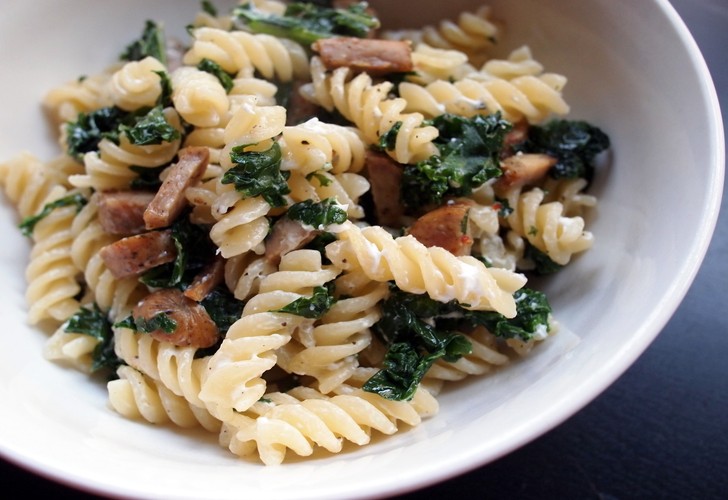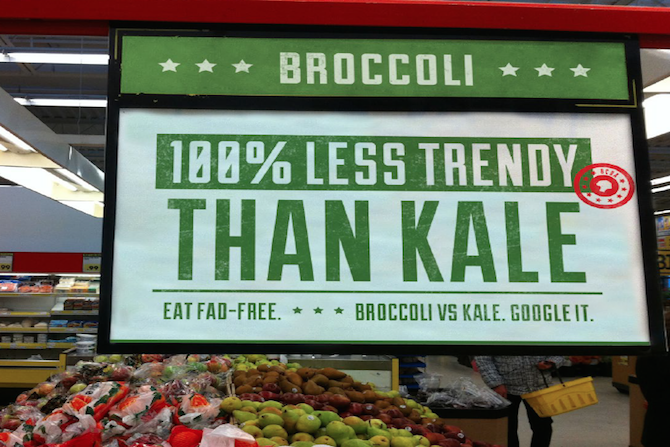Let me first say, this article is not intended to be an angry diatribe against kale or any other notoriously healthy food. I love to eat delicious, nutritious foods – they taste good and feel good too. To me, tomatoes are candies, beets provide a textural adventure, and mushrooms make me drool (don’t ask).
However, when someone looks me in the eye and tells me, “I love raw kale!” I get the immediate feeling that they are lying to my face. Or perhaps, lying to themselves. Either way, a lie has taken place. I’m not usually one for conspiracy theories, but it is as if everyone around me met behind my back and said, “wouldn’t it be funny if we all pretended that raw kale was amazing and cool and just ate it all of the time?” Well, raw kale is not amazing, but it has definitely become and stayed a fad for a little over a year now.
Now, I don’t deny that kale can be tasty, but it seems that it needs to be manipulated in some way in order to be edible. For example, I love the kale chips from The Juice Press– they are tangy, flavorful, crispy, and altogether, unkale-like. Massaged kale is also great; however, even the name points to the fact that raw kale is typically rigid and needs to relax.

Posted by Elizabeth Tadie from Spoon – University of Chicago
I am all for farm-to-table but when I eat kale, I feel like I am putting scoops of dirt and twigs directly into my mouth. And it is undeniable that kale is good for you. It is packed with calcium, Vitamin C, antioxidants, iron, and fiber; however, is it really any better than other greens? Am I doomed to a life of insalubrious filth just because I don’t like the taste of raw kale? Apparently not.
In my research, I found that kale is not actually the healthiest green around. The following ten greens have all been reported to be healthier than kale by the CDC: collard greens, parsley, leaf lettuce, chicory, spinach, beet greens, chard, Chinese cabbage, and watercress. Even the overlooked romaine lettuce came out on top of kale (yeah I said it), as it has a ton of folic acid, which boosts sperm count and fights depression. Additionally, like any other cruciferous vegetable (e.g., broccoli, cauliflower, Brussels sprouts), kale should not be eaten in excess. It has been found that high consumption of cruciferous vegetables causes hypothyroidism (a condition in which your thyroid gland doesn’t produce enough certain important hormones), especially in people with iodine deficiency.

Courtesy of amazonaws.com
Yes, everything in moderation is okay – but on that note, I address you directly kale: you have taken the spotlight for far too long. You are not the Regina George of greens. Let the sun shine on the other vegetables that you have so rudely shoved to the side with your tough, bitter leaves. I believe that there is a world in which all greens can coexist happily together on a menu (and build a cake filled with rainbows and smiles and everyone would eat and be happy).

